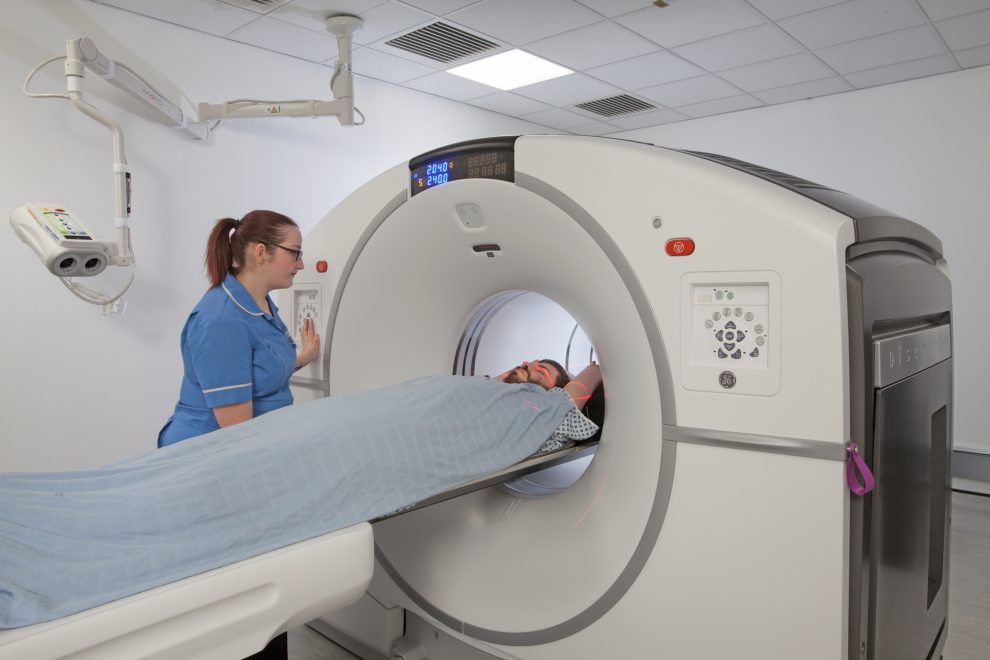TWO years after the Welsh Government unveiled its ambitious plan to overhaul cancer care and reduce waiting times, the latest data reveals a stark reality: there has been no significant improvement.
New figures from NHS Wales indicate that nearly half of cancer patients are still waiting over 62 days to begin treatment. This troubling statistic underscores the ongoing crisis in Welsh cancer care, despite the dedicated efforts of healthcare professionals.
Glenn Page, Policy and Public Affairs Manager for Macmillan Cancer Support, expressed his concern, stating: “Around half of people diagnosed with cancer are having to wait more than 62 days to start treatment. There are real people’s lives behind these unacceptable figures. At Macmillan, we hear every day from patients and their loved ones about the unbearable anxiety and worry these delays cause, on top of everything else a diagnosis brings.”

The persistent delays in cancer treatment have significant implications. Survival rates in Wales lag behind those in other countries by as much as 20 years, a disparity that reflects the severe strain on NHS cancer services. Despite minor improvements from the previous month, the performance remains worse than the same period in three of the past four years.
In May 2024, over 800 people in Wales waited more than 62 days to start cancer treatment, accounting for 45% of all patients who began treatment that month. This is a slight improvement from the previous month’s 53.8%, yet still highlights the systemic issues within the NHS.
Particularly concerning are the waiting times for specific cancer types. Only 33.3% of urological cancer patients and 34.3% of head and neck cancer patients started treatment within the target time in May 2024. Macmillan’s analysis further reveals that survival rates for colon and rectal cancer in women in Wales are only now reaching the levels seen in Sweden and Norway in the early 2000s.
Macmillan Cancer Support is calling for urgent action from the Welsh Government. Page urges the Cabinet Secretary for Health and Social Care to update the nation on the progress towards meeting the commitments made to improve cancer services and reduce waiting times. “We need assurance that tangible steps are being taken to ensure people living with cancer receive the timely care and support they need,” Page emphasised.
The latest NHS statistics have drawn criticism from the opposition. Commenting on the figures, Sam Rowlands MS, Welsh Conservative Shadow Health Minister, said: “These abysmal statistics show Labour’s performance on health continues to get worse here in Wales. The Labour Welsh Government have consistently missed their targets and this is not just the outgoing First Minister’s legacy, but the result of 25 years of Labour mismanaging the Welsh NHS. The Welsh Conservatives would enact a substantial workforce plan to empower primary care services and would fully resource the Welsh NHS with every penny received for health, as opposed to Labour’s decision to squander these funds on creating more politicians.”
In response, a Welsh Government spokesperson acknowledged the challenges but highlighted the efforts and progress being made: “Our incredibly hard-working NHS staff continue to provide life-saving and life-changing care in the face of incredible demand for its services. More than 14,250 people were told the good news that they do not have cancer in May – an incredible number. It is pleasing to see performance improved against the 62-day target too.
“The number of immediately life-threatening (red) 999 calls to the ambulance service made each day was the second highest on record, and the proportion of these calls was the highest recorded. This level of demand – a 28% increase compared to the same month in 2023 – means it is increasingly tough to meet the target response times, but even so, there was an improvement in June and almost eight out of 10 calls received a response within 15 minutes.
“Performance against the 12-hour target for emergency departments improved slightly in June and the majority of people were discharged, admitted or transferred in less than two hours and 50 minutes. The number of emergency admissions decreased by 5.6% this month – a further indication that work through our national Six Goals programme to care for people closer to home is having an impact.”
The spokesperson admitted the overall disappointment in NHS performance figures: “The waiting list has grown again and, after 24 months of consecutive falls, the number of people waiting more than two years for treatment has increased for the second month in a row. The Health Secretary has made it clear to health boards that she expects to see progress – and sustained progress – to reduce long waits and waiting times for treatments. She will be making it clear to the leadership of health boards today that the situation is not acceptable and must improve.”
In closing, the spokesperson highlighted the scale of the challenge: “There is still a way to go to reduce the backlog, which built up during the pandemic. But the NHS continues to deliver an enormous amount of activity for a population of 3 million people – since April 2022, more than 2.5 million patient pathways have been closed at an average of 103,000 a month.”
Key Facts:
- In May 2024, more than 800 people in Wales waited over 62 days to start cancer treatment.
- Performance improved slightly from the previous month but remains worse compared to the same period in three of the past four years.
- 2023 was the worst year on record for cancer waiting times in Wales.
- The national cancer waiting times target in Wales has never been met since its introduction.
- For some cancers, such as urological and head and neck cancers, only around one-third of patients started treatment on time in May 2024.
- Survival rates for colon and rectal cancer in women in Wales are just now reaching levels achieved by Sweden and Norway in the early 2000s.















